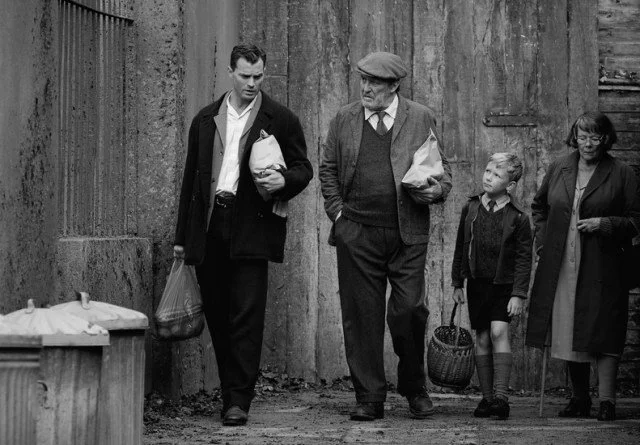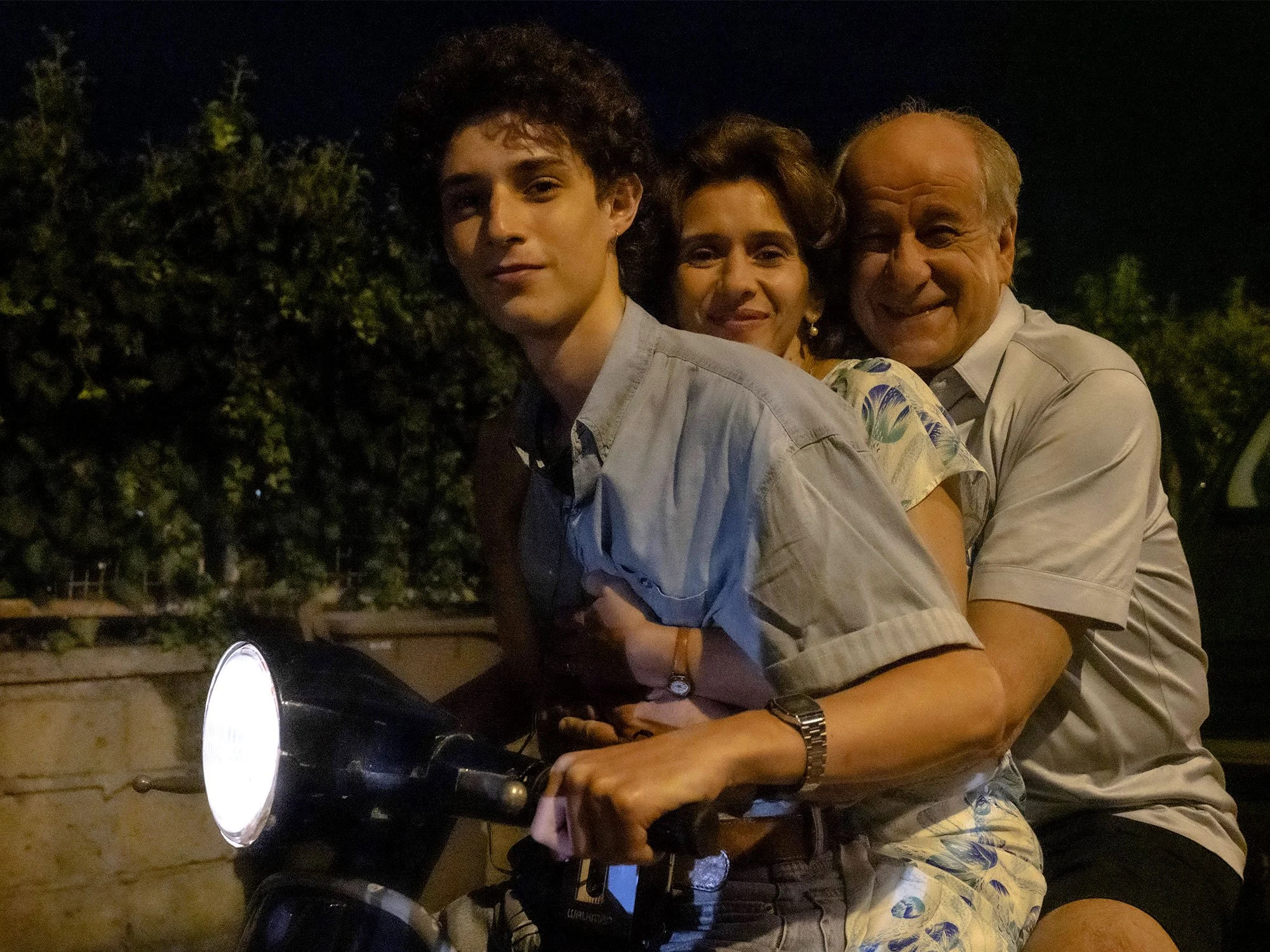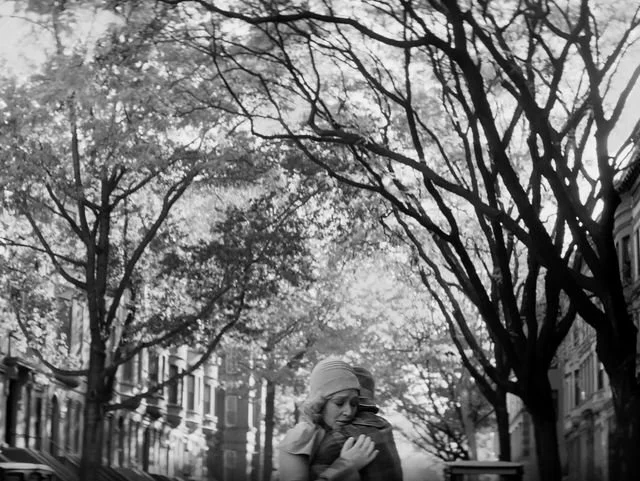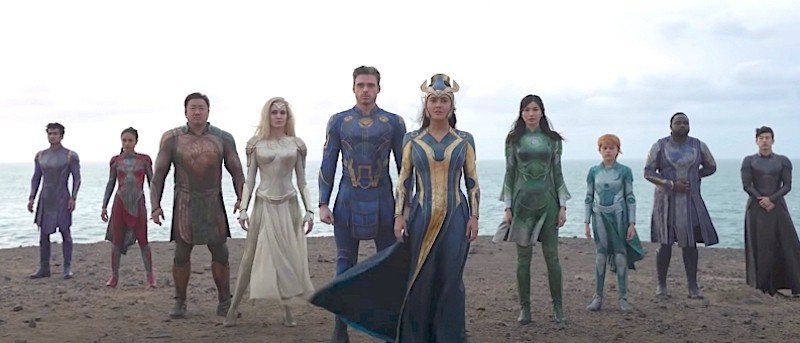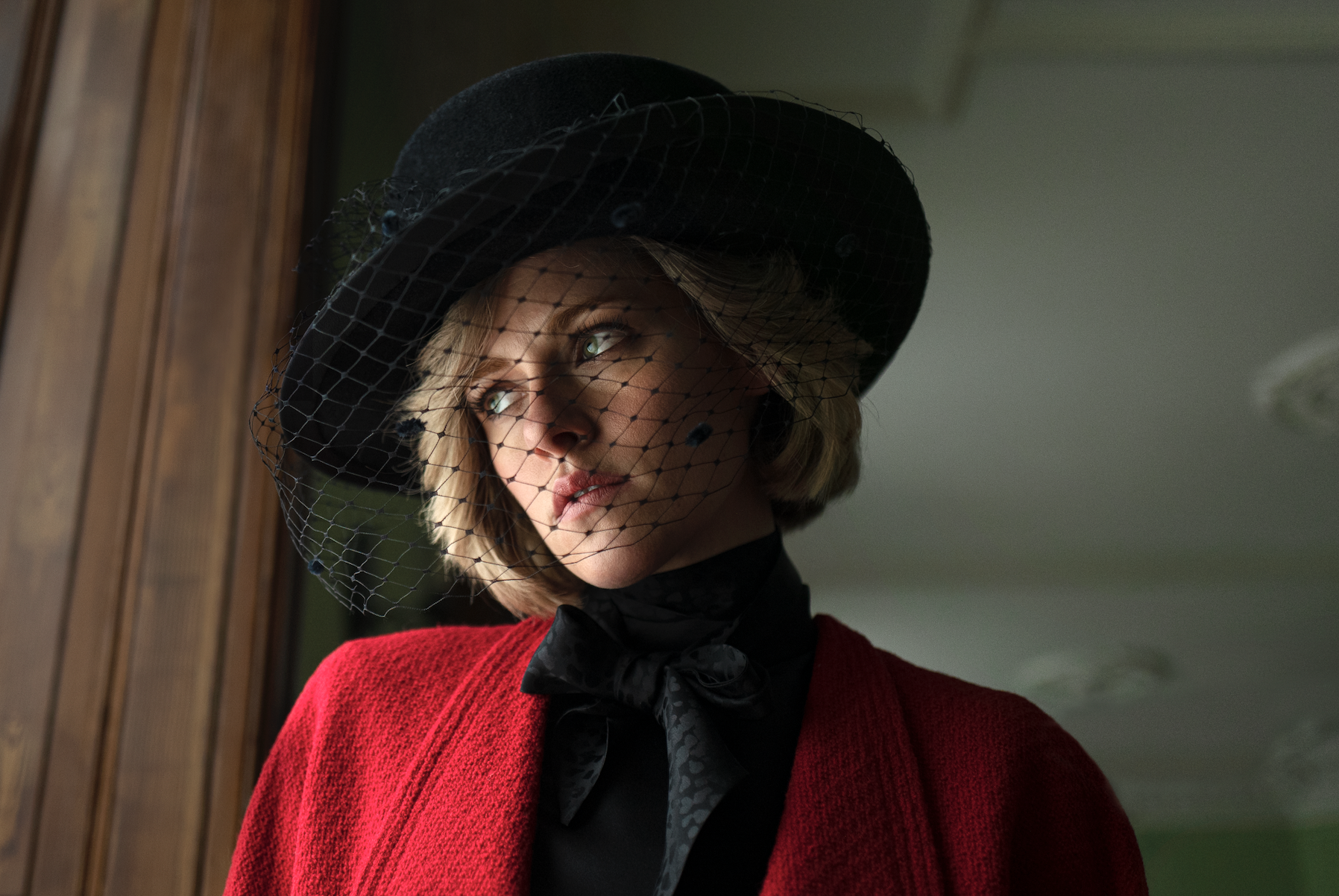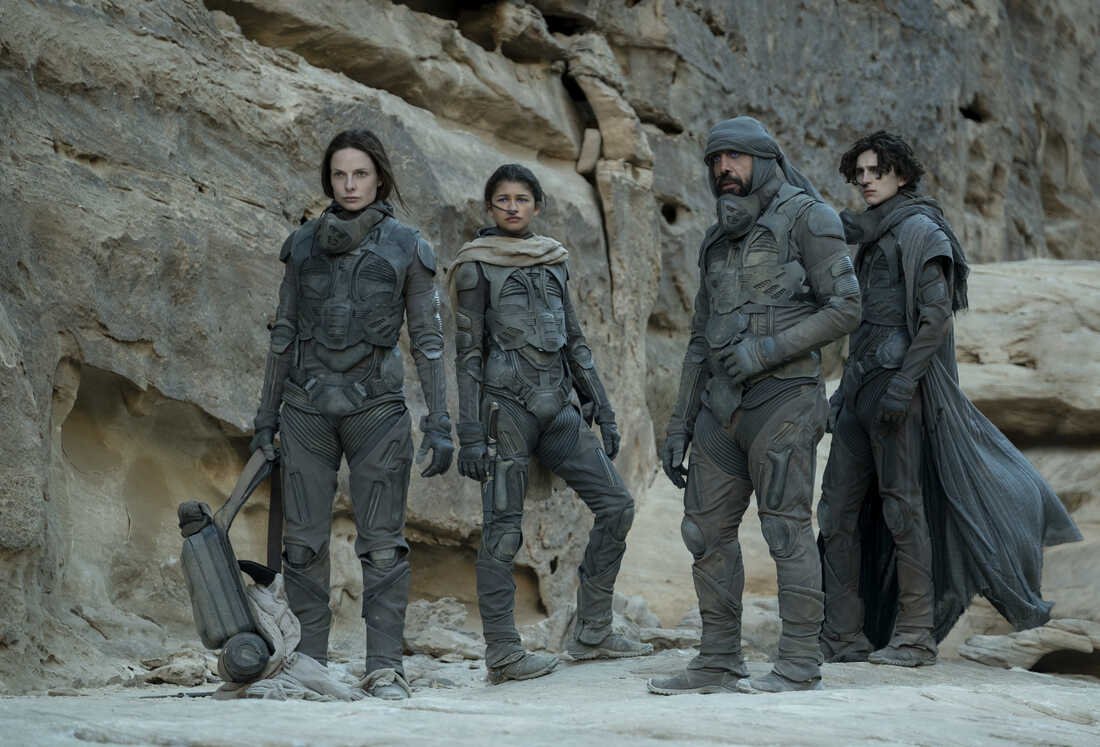BELFAST
Directing: B+
Acting: B
Writing: B+
Cinematography: A-
Editing: A-
There’s a lot to love about Belfast, perhaps most significantly its beautiful black and white cinematography, which wonderfully complements its warm and wistful tone. It should be noted that there are moments of color, used in two very specific ways: the opening shots are of modern-day Belfast, in color, so if you go knowing to expect a black and white movie, don’t get confused. You’re in the right movie.
And this is one worth seeing on the big screen, if you can. I was certainly glad I did. This movie is already very much in the Oscar conversation, and although I do think it deserves to be, I am also already wary of it becoming overrated. This is a movie pulled off with unique skill, but I would hesitate to call it a masterpiece—a word I’ve already seen thrown out about it.
The thing is, Belfast is slightly wanting, when it comes to the performances. This is a film by Kenneth Branagh, inspired by his own childhood in the titular city in Ireland, and it centers around a young boy nicknamed Buddy, played by the achingly adorable, 9-year-old Jude Hill. This little boy has talent, extracted by Branagh with surprising finesse—there’s one scene early on in which the camera lingers on his face for so long, the kid acting through it, I was astonished. But, he is still a kid, and there are moments when one wonders whether Branagh just happened to get lucky catching him just naturally being a kid.
Still, the kid carries the movie well. My real issue is with his dad, played by Jamie Dornan, who frankly isn’t any better here than he was in Fifty Shades of Grey. He has the look and demeanor to match that of his character, an unassuming working class husband and father doing his best to keep his family safe in dangerous times. He also appears in a number of scenes looking like little more than a deer caught in headlights. I’m a little mystified by the casting choice, honestly.
Buddy’s mom is played by the regal Caitriona Balfe. Best of all, we get both Ciarán Hinds and Judi Dench as Buddy’s grandparents. Dench in particular is more unrecognizable in this part than I think I have ever seen her, and both she and Hinds disappear into their parts with ease. I’d be interest in a movie focused on their characters.
But, this is more about Branagh’s recollection of his own childhood in late sixties Ireland, when clashes between Catholics and Protestants were consistently violent. The very idea of this is hard for me to wrap my head around—I mean, they’re all Christians, right?—but then, it’s not that different from warring sects of Muslims, I suppose. In neither case is it objectively rational, but, whatever. It’s also strange to consider from the vantage point of the 2020s, but it’s useful to note that people are still alive today who remember a time and place like this.
Belfast barely even has Catholic characters, as Buddy’s family are Protestant themselves—but, they are also caught in the crossfire, both metaphorically and literally, as a family uninterested in the militant beliefs of others of their same denomination. Very close to the start of the movie, we see Protestant rioters vandalizing the homes of many on their street, just because there are some Catholics still living there. The broad arc of the story involves Buddy coming to terms with the idea that their family will have to move away from their home in order to maintain their safety.
I left the movie thinking about what a mistake it can be to take for granted that it could never get like that where I live. That said, in spite of such heavy considerations, what really makes Belfast a success is its wealth of humor, particularly through the prism of Buddy’s innocence. Belfast has a lot in common with Alfonso Cuarón’s Roma (2018)—a film that gets a lot closer to being a masterpiece, and yet is far less accessible to general audiences, being a far more meditative and intellectual pursuit. Belfast is certainly comprised of layers and nuance of its own, but Branagh is also much more interested in making space for fun. Through the eyes of Buddy, the story has an irresistible sweetness to it.
Buddy also loves movies, and this is the other place where Branagh brings color into what he puts onscreen: every clip we see of movies they go to see is in color, and when the camera cuts to the family in the audience, they are in black and white. The movie reflected in color in Granny’s black and white glasses is a clever little detail. It also underscores the technicolor fantasies into which they can escape from the stresses of their lives.
It’s nice to see a movie about such kind, uncomplicated but still world-weary people. This is a family—including Lewis McAskie as Buddy’s older brother, Will, who gets the least screen time out of all of them—just trying to get by in trying times. It’s no spoiler to say that they wind up having to move away, as Branagh himself did at the age of nine, and this film serves to honor his memory of the home he had to leave. It has its seams visible here and there, but it still achieves its goal and as such is worth attention.
It was a good childhood for at least one kid.
Overall: B+

